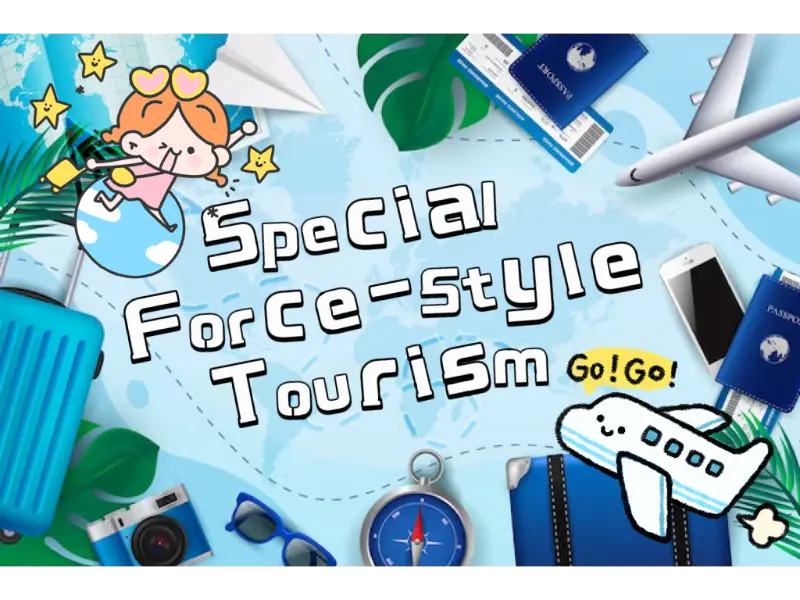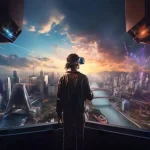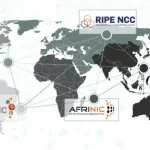- “Special Forces-style Tourism” is a new trend among Chinese youth, driven by a desire for quick and budget-friendly exploration, inspired by special forces efficiency.
- Technology and social media reshape travel habits, from pre-trip planning on Instagram to using AI-driven booking apps like Expedia, creating more personalised and cost-effective journeys.
- The rise in sustainable tourism reflects increased social and environmental responsibility among young travelers, fostered by technology and social media, shaping more conscientious exploration.
A new wave is sweeping across the world of travel, redefining the way today’s youth embarks on adventures.
Called “Special Forces-style Tourism,” this transformative approach marks a departure from conventional travel methods, placing social media and technology at the forefront of the exploration experience.
What is Special Forces-style tourism?
Special Forces-style tourism is a new trend among young people in China, where they travel to as many tourist sites as possible in a limited amount of time while spending the least amount of money. This travel style is inspired by the training of special forces soldiers, who are trained to complete missions quickly and efficiently.
The trend has gone viral in China over the past couple of months and is also known as “revenge tourism”. The rise of this travel style has garnered support from Chinese netizens and local media outlets have embraced the “special forces” concept as a marketing strategy to attract young travelers.
Just as Brittany Betts, CMO of FloridaPanhandle.com said to BTW that “Tourism is ever-changing, so it would make sense that something like social media can revolutionize the way that we travel and think of tourism. “
Before you leave: Make a travel guide
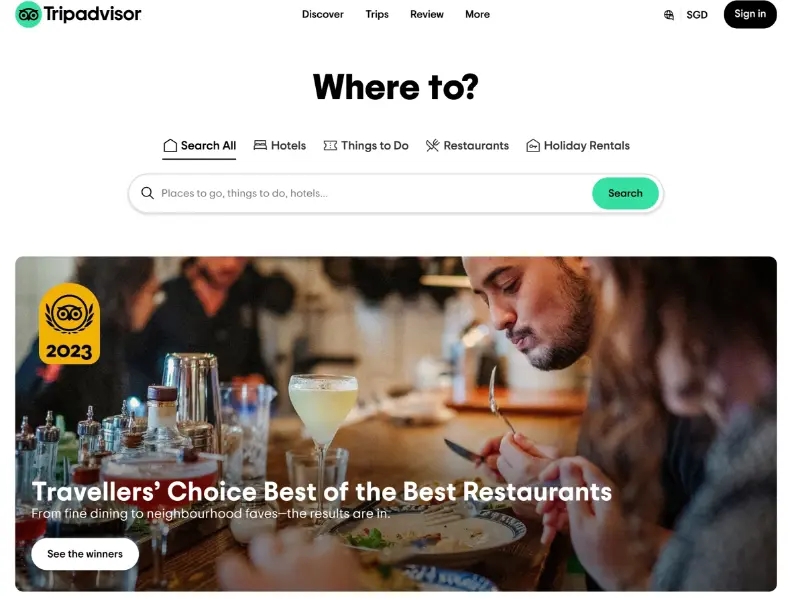
Before setting out, young travelers embrace a modern pre-tour planning approach, diverging from tradition. In today’s digital era, Instagram, Pinterest, and YouTube serve as primary hubs for travel inspiration. Influencers, trending hashtags, and user-generated content become vital tools for discovering unique destinations and activities.
In contrast to conventional paper maps and guides, contemporary explorers rely on a virtual arsenal of social media platforms, signaling a departure from the norm in favor of unconventional journeys.
Travel apps like TripAdvisor, Yelp, TikTok and Weibo play crucial roles in shaping pre-tour plans, empowering travelers to curate personalized itineraries based on authentic reviews and recommendations. Accommodations, restaurants, and attractions are chosen with insights gleaned from real experiences.
Platforms like Expedia showcase the integration of artificial intelligence in travel planning, reducing dependence on traditional search engines. This AI-driven revolution ensures each journey is uniquely tailored, breaking away from the one-size-fits-all model.
In the realm of pre-tourism, the digital landscape serves as the canvas for the modern explorer. From following influencers to navigating AI-driven platforms, each click and scroll contributes to crafting a distinctive, immersive travel narrative aligned with contemporary preferences.
Also read: Short videos have revolutionised the e-commerce industry, but is quality giving way to profit?
Get ready to go: Book your flight and hotel
Once the destination is chosen, the next steps involve booking flights and accommodation. Younger generations increasingly favor the use of online travel agencies (OTAs) such as Expedia, Booking.com, and Airbnb for swift and convenient reservations.
These platforms typically offer mobile applications, facilitating easier trip planning and booking for users.
Notably, Expedia’s integration of artificial intelligence has not only transformed the way travel plans are made but has also redefined the booking process for flights and accommodations.
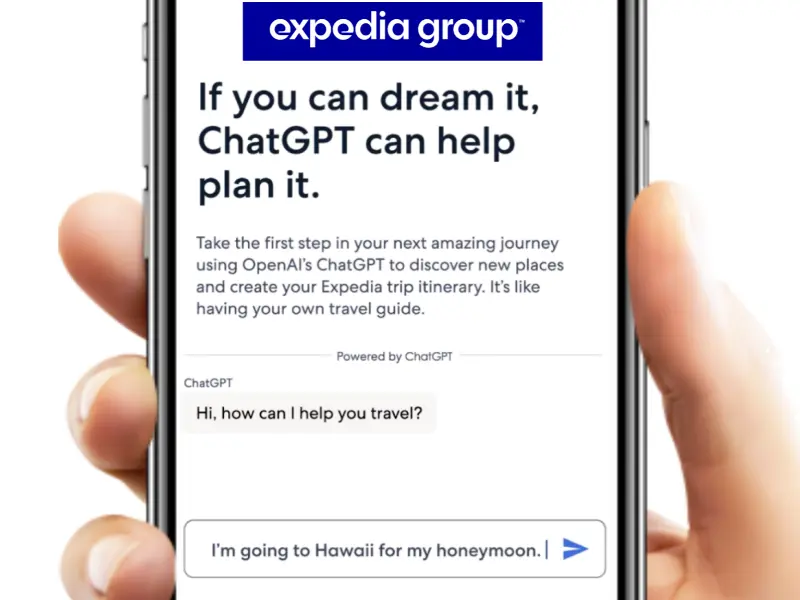
High technology efficiently streamlines booking, reduces costs, and enhances the travel experience. Leading online travel agencies like Expedia employ advanced algorithms and artificial intelligence for personalised recommendations, speeding up decision-making. Automation ensures instant booking confirmations, saving time and boosting user satisfaction.
Data-driven pricing algorithms optimise costs, offering real-time, cost-effective options.
User-friendly interfaces and mobile apps make planning and managing trips convenient, contributing to an enjoyable travel experience. In essence, technology transforms the travel process, providing personalised suggestions, automating tasks, cutting costs, and delivering a user-friendly journey.
Navigating the journey: Exploring the path
Despite thorough travel planning, navigating a new destination, especially unique ones like Chongqing with distinctive terrain and transportation, can be challenging. Traditional navigation tools prove inadequate in such cases.
Here, the role of Virtual Reality (VR) and 3D technology becomes crucial, offering a more immersive and precise exploration method.
Platforms like Google Earth VR allow users to virtually visit iconic landmarks, offering a 360-degree panoramic view.
These advancements revolutionise the travel experience, particularly when traditional navigation methods fall short.
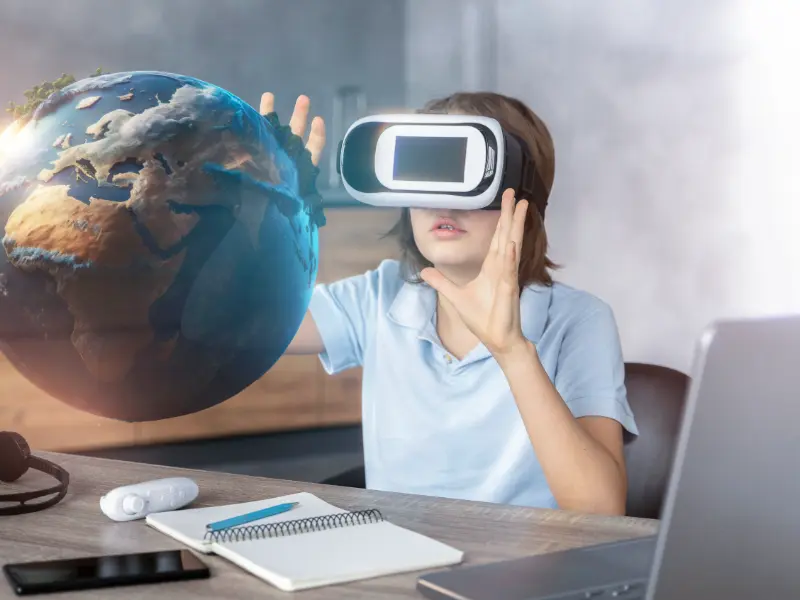
Virtual Reality (VR) and 3D technology provide a more immersive and accurate way to explore unique destinations like Chongqing, overcoming the limitations of conventional navigation tools.
Travelers can navigate complex terrains and transportation systems with greater ease, enhancing their overall journey and making exploration more enjoyable and efficient.
Pop quiz
How do social media and apps simplify the process for young people to explore local culture?
A. By replacing traditional travel guides entirely.
B. Through platform search features, uncovering hidden local gems.
C. By offering exclusive discounts on local activities.
D. None of the above.
The answer is at the bottom of this article.
Local experience
Social media and apps have simplified the process for young people to explore local culture. Using platform search features, they can uncover hidden gems such as local restaurants, activities, and attractions not typically found in traditional travel guides. This enables a more immersive experience, fostering interactions with locals and the opportunity to engage in unique activities.
Platforms like TikTok provide an effortless way for travelers to delve into the local culture and discover distinctive activities. Through videos, users gain insights into local traditions and customs, encouraging them to participate in various regional experiences.
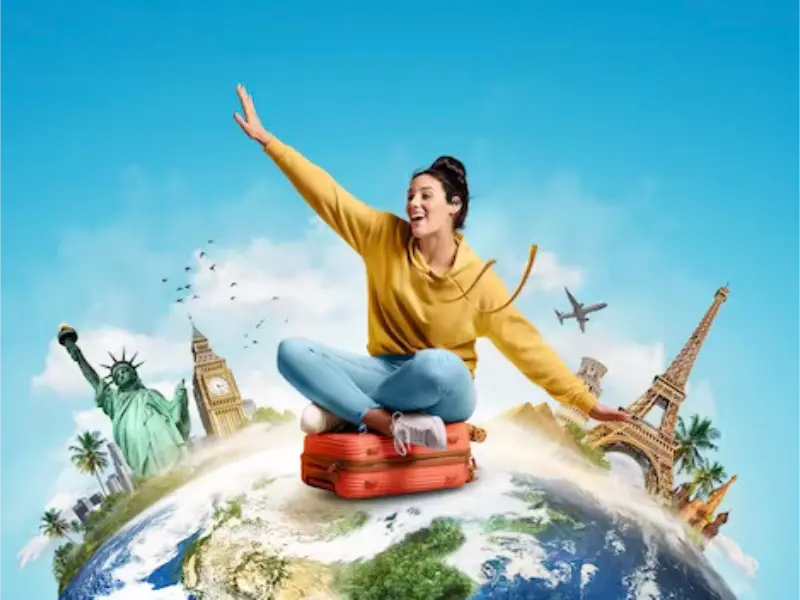
Additionally, initiatives like Meet Chicago Northwest’s Passport program offer incentives for visiting specific destinations and establishments. Users earn points by checking in on social media, which can be later redeemed for prizes. This engaging approach encourages visits to local businesses, leveraging technology that is easily accessible to smartphone users.
It’s important to note, however, that some popular social media attractions may differ from personal experiences, and expectations should be managed accordingly.
Also read: Expedia adds AI, but personalised travel still won’t beat search engines
Post-travel: communication and sharing
Social media enables young individuals to stay in touch with family, friends, and followers while on the go. Through various apps, they can effortlessly share photos, videos, and instant messages, enhancing the social aspect of their travels.
Applications such as WhatsApp, Telegram, and WeChat facilitate seamless communication with friends, family, and travel companions, regardless of their geographical location.
Moreover, they have the opportunity to chronicle their travel adventures on social media. Young travelers use platforms like Instagram, Snapchat, and TikTok to document their journeys in real-time. This not only creates lasting memories but also offers valuable information and advice to others about the destination.
Marissa Bachrach, a PR Professional at Mekky Media Relations, Inc., emphasized to BTW that “Social media is making it more accessible than ever to keep up with what everyone is doing. This can lead to others experiencing FOMO, (fear of missing out) so social media can actually be a driving factor in promoting tourism.”
Social media is making it more accessible than ever to keep up with what everyone is doing. This can lead to others experiencing FOMO, (fear of missing out) so social media can actually be a driving factor in promoting tourism.
Marissa Bachrach, a PR Professional at Mekky Media Relations, Inc.
Sustainability and responsible tourism
Young people’s evolving habits are driving a pivotal trend – the embrace of sustainable tourism. Technology instills a heightened sense of social and environmental responsibility in millennials, influencing their travel choices.
Technology serves as an information hub, educating young travelers about the potential environmental and social impacts of their journeys. Social media platforms enlighten them about sustainable tourism practices, shaping their perspectives.
Online booking platforms provide a convenient gateway for young individuals to access sustainable lodging and transportation options. Effortlessly filtering eco-friendly choices contributes to reduced environmental footprints during travel.
The pervasive influence of social media spurs discussions among young travelers on the merits of sustainable tourism, fostering a conscientious selection of environmentally friendly activities.
In essence, the surge in technology and social media not only transforms young people’s travel preferences but also propels the rise of sustainable tourism, steering the industry towards greater social and environmental sustainability.
The advent of “Special Forces-style Tourism” marks a significant departure from traditional travel approaches. This feature unravels the layers of this transformation, emphasizing the fusion of technology, social media, and responsible tourism. As younger generations navigate the future of travel, these elements converge to create a more personalized, immersive, and socially conscious exploration of the world.
The correct answer to the pop quiz is B. Through platform search features, uncovering hidden local gems.
